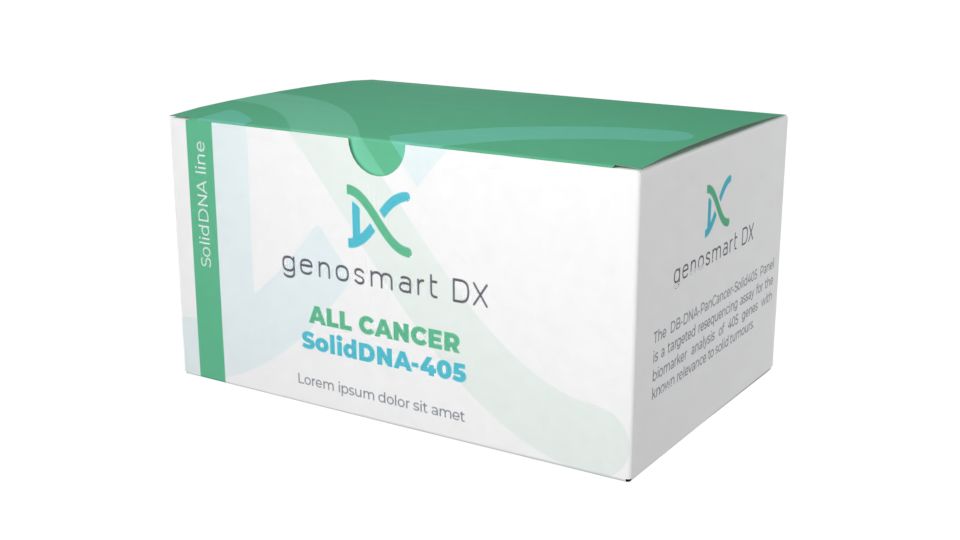genosmart DX Breast Cancer PlasmaDNA-1

Circulating tumor DNA testing to monitor breast cancer status
Useful for
The genosmartDX Breast Cancer PlasmaDNA-focus is a targeted resequencing assay for the analysis of hotspots in 12 genes with known relevance to breast cancer therapies. The assay is circulating tumour DNA based and identifies variations from the plasma. ONE of the following 29 targets of the 12 breast cancer related genes are monitored: AKT1 E17, CDH1 Q23, EGFR G719, EGFR K745-N756, EGFR L858, EGFR L861, ESR1 E380, ESR1 S463, ESR1 V533-D538, FGFR1 K656, FGFR4 G388, HER2 G309, HER2 S310, HER2 L755-D769, HER2 E770-V777, HRAS G12, HRAS G13, HRAS Q61, KRAS G12, KRAS G13, KRAS Q61, MET D1010, PIK3CA E542, PIK3CA E545, PIK3CA H1047, TP53 5.-8. exons. Method: PCR-amplification-based target enrichment and Next-Generation Sequencing.
Speciment type requirements
2x ~10 ml of blood in PAX or Streck tubes
Required information
Known variants in the tumour/previous plasma sample
Clinical interpretation
Targeted cancer therapies are defined as antibody or small molecule drugs that block the growth and spread of cancer by interfering with specific cell molecules involved in tumour growth and progression. Multiple targeted therapies have been approved for treatment of specific cancers. Molecular genetic profiling is often needed to identify targets amenable to targeted therapies and to minimize treatment costs and therapy-associated risks.
Cautions
This test cannot differentiate between somatic and germline alterations. Additional testing may be necessary to clarify the significance of results if there is a potential hereditary risk. DNA variants of uncertain significance may be identified. A negative (wild-type) result does not rule out the presence of a mutation that may be present but below the limits of detection of this assay. Rare polymorphisms may be present that could lead to false-negative or false-positive results. Test results should be interpreted in the context of clinical findings, tumour sampling, and other laboratory data. If results obtained do not match other clinical or laboratory findings, please contact the laboratory for updated interpretation. Misinterpretation of results may occur if the information provided is inaccurate or incomplete.
NGS
If you have prepared your own libraries, but you do not want to invest to a next generation sequencer or you want short TAT with low cost, use our sequencing capacity
Bioinformatics
If you prepared and sequenced your samples, but want to have an accurate and in depth, fully annotated analysis with help in therapeutic decisions use our bioinformatics service

